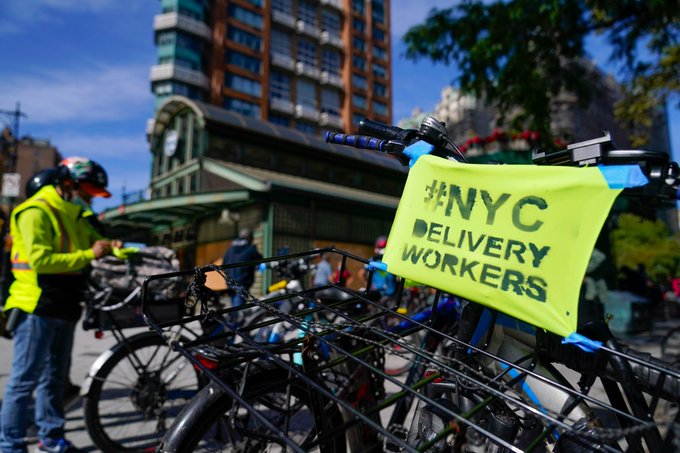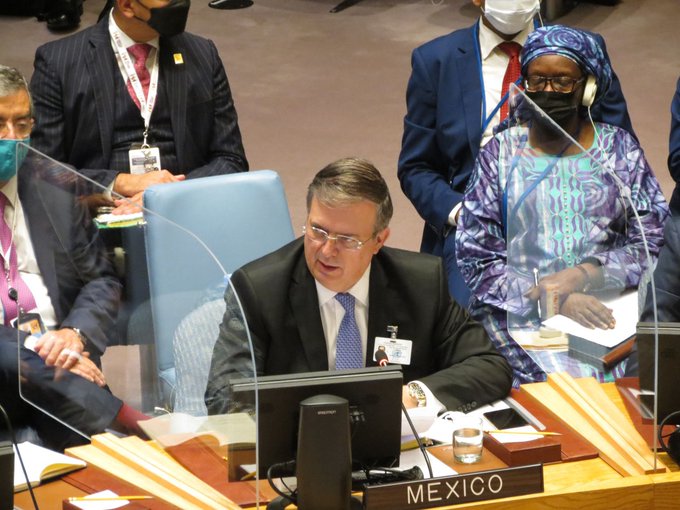The city of New York approved this Thursday a legislative package that recognizes a minimum wage and other rights for food delivery people who work for mobile applications, and who are the key pieces of a business that exploded with the COVID pandemic. -19.
The law, approved today by the New York Council, requires delivery companies in the city, such as Grubhub, DoorDash or Uber Eats, to guarantee minimum conditions for home-based workers, many of whom are immigrants of Latin American origin. .
The new rule does not allow these companies to charge the “deliveristas” , as they are known in the Latino community, a fee to collect their salaries, or to force them to bear the costs of the isothermal containers.
In addition, it ensures that delivery men have access to the restrooms of the restaurants where they collect the food they are going to deliver and requires the companies they work for to report their tip policy.
The new law also allows these workers to establish certain distance restrictions or avoid delivery zones on their itineraries, without incurring reprisals.
DELIVERY SATISFACTION
“This law means a lot, right now we have many feelings tied here in the stomach, but the main thing is that there will be many changes, we will feel better, from now on we will begin to notice it,” said Manny Ramírez, who has been working for a long time. four years as a delivery man.
Ramírez, who lives with his mother, his wife – also a delivery man – and their five children, explains from the town hall where he celebrates this victory, that he currently works seven days a week.
“I leave my house at 8.30 in the morning and return to my house at around 11 at night,” he says after explaining that in January he had an accident while delivering an order that left him bedridden for four months and that his wife she stopped delivering when she gave birth in March.
Ramírez emphasizes that until now they could not even enter the bathrooms, that each company imposed its minimum per delivery that changed without prior notice and that there was no limit on the distances traveled.
“It is a battle between David and Goliath, the very small ones against the huge ones, because they have millions, lawyers, businesses, connections and we are small down here, but we are raising our voices. It is a great victory even though they have been baby steps,” he says Before remembering that when he was in the ambulance after suffering his work accident and called the company he worked for, the only concern on the other end of the phone was whether he had delivered the order, “if the order was okay . “
On the other hand, the director of public policy of the organization “Los Deliveristas” , Hidalyn Colón, insisted that guaranteeing a minimum wage, being able to use the bathrooms or the question of distances “is a big step in an industry totally without regulations” .
However, for Colón, the law, which has been approved unanimously, “is the first step of many,” because other key issues such as accident compensation insurance remain pending.
“The immigrant distributors have demonstrated the power to organize and ask the municipal council to act so that the companies that develop applications are held accountable,” local legislator Carlos Menchaca, one of the councilors who supported the initiative , said on his Twitter account .
For her part, the also New York councilor Carlina Rivera showed on social networks her satisfaction with the recognition of these rights and expressed her wish that “this is only the beginning.”



















































































